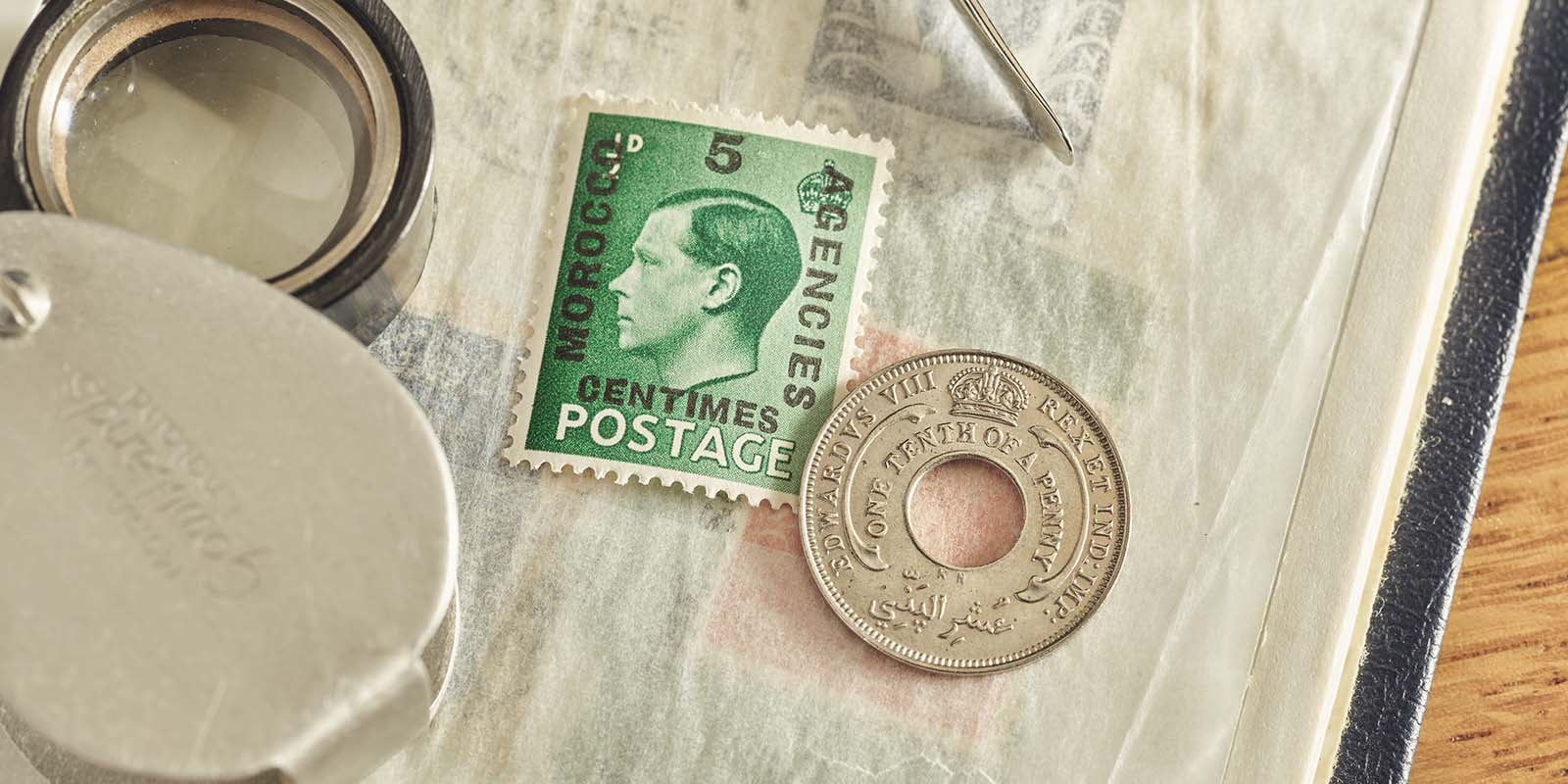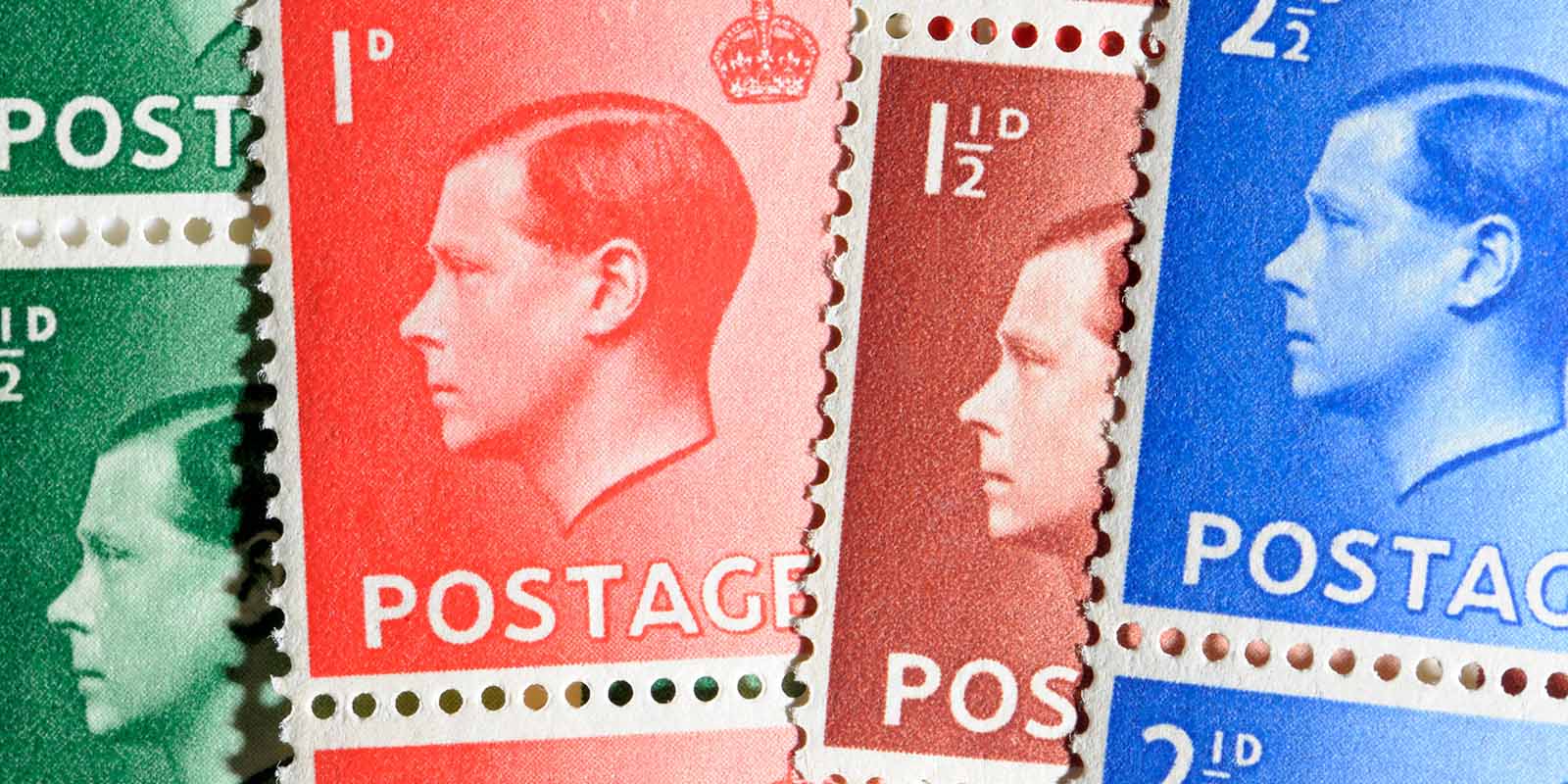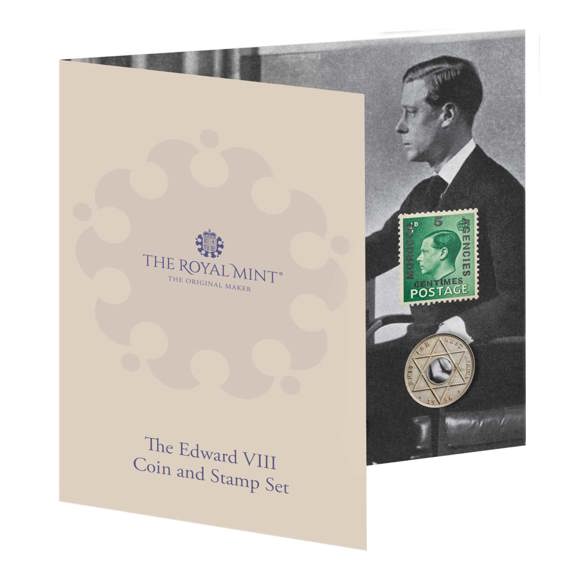
Edward VIII was king for less than a year in 1936 before abdicating to marry divorcee Wallis Simpson. Due to his short reign, most of the coins that were produced upon his accession were never released for circulation. The exact number of Edward VIII coins still in existence is unknown but the majority were melted down, therefore the coins that remain are rare and often very valuable.
When Edward VIII inherited the throne from his father George V in January 1936, a series of definitive postage stamps were also commissioned by the British Post Office. These stamps would serve as a temporary ‘Accession’ issue to be produced as soon as possible and to be replaced by a ‘Coronation’ set of stamps and later a permanent series of stamps following the king’s coronation.
Stamp printers Harrison and Sons were asked to produce ideas, and designs were also submitted by the public. The Post Office were particularly impressed by the submission sent in by Hubert J Brown, a 17-year-old schoolboy. His simple pencil drawing design featured a central portrait of Edward VIII, the denomination in figures in the top left, the Crown in the top right, the value in words along the bottom, and the words ‘POSTAGE’ and ‘REVENUE’ along the left and right sides of the stamp. Hubert’s design was forwarded to Harrison and Sons, who added a photogravure portrait of Edward VIII by Hugh Cecil that had been approved for use on the new stamps. Photogravure was a new and sophisticated intaglio print process using copper plates which produced high-quality reproductions of photographs in ink. Four values of the ‘Accession’ stamp set were issued, the ½d green, 1½d brown, 2½d blue and 1d red.

The Post Office was reluctant to acknowledge Hubert’s contribution to the new design due to his young age. They sent him a letter, stating: ‘Stamps of the new reign will appear shortly and you will see that the design which has been selected bears some features in common with that which you suggested,’ but refrained from giving Hubert the credit that he deserved. In fact, the Post Office gave no recognition to Hubert until the philatelic press disclosed the truth in January 1937.
After Edward VIII’s abdication, there was a delay in producing stamps for the new monarch, King George VI. Edward VIII’s stamps remained on sale for months and many were saved for commemorative purposes by the public, meaning, unlike Edward VIII’s coins, his stamps are not particularly rare but are still collectable.
Edward VIII Coin and Stamp Set
Due to his short reign, coins struck during Edward VIII’s reign were not released for circulation within the United Kingdom, but some were struck for use overseas. One of the few places to issue coins featuring Edward VIII’s inscription is British West Africa. This set features a 1936 1/10th penny struck in Birmingham at the Kings Norton Mint before being exported. These coins feature a hole in the middle. Traditionally, these holes allowed the coins to be strung along a string and worn for convenience.
Also included in this set is a 1936 green halfpenny stamp, first issued on 1 September 1936, that features Edward VIII’s portrait by Hugh Cecil. The stamp was designed by Hubert J Brown, a 17-year-old who submitted his idea to stamp printers Harrison and Sons. The stamp included in this set has been overprinted with the word ‘MOROCCO AGENCIES’ to be used in British post offices in Morocco.
Find out more
